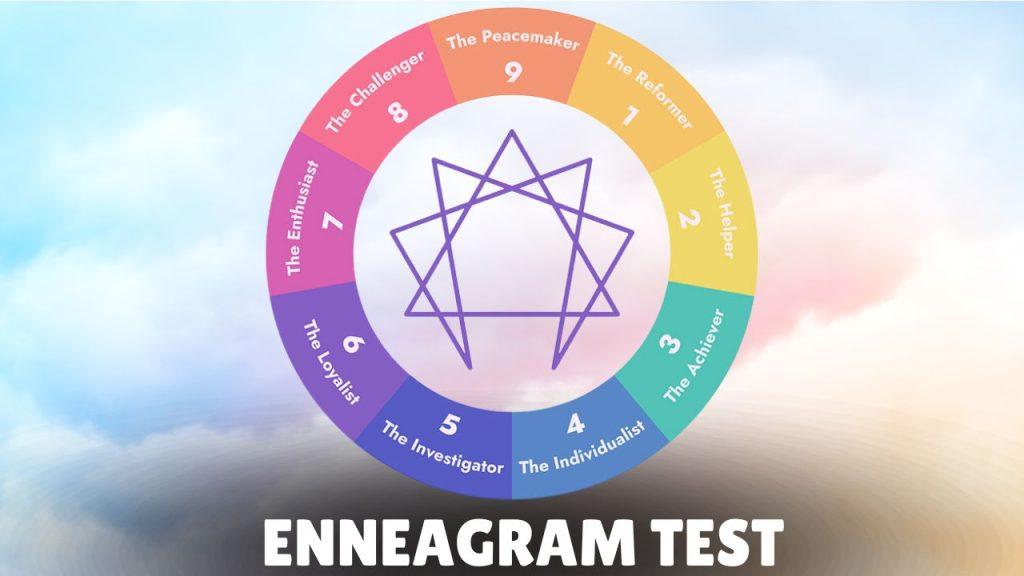The Enneagram is more than just a personality test; it’s a profound tool for self-discovery and growth. At its core, the Enneagram system identifies nine distinct personality types, each representing a unique way of thinking, feeling, and interacting with the world. These types go beyond surface behaviors, delving into the motivations, fears, and desires that shape our actions and decisions. Whether you’re looking to deepen your understanding of yourself or improve your relationships with others, the Enneagram provides valuable insights into how you operate at a fundamental level.
Unlike other personality frameworks, the Enneagram offers a holistic view of who you are, highlighting your strengths while acknowledging areas for growth. It invites us to embrace our imperfections and develop a greater sense of empathy toward ourselves and others. By understanding your specific Enneagram type, you can better navigate life’s challenges, develop healthier habits, and foster more meaningful connections. This ancient system, with its modern-day applications, serves as a guide to personal transformation, offering a path toward greater emotional balance and fulfillment.

What is Your Enneagram Type?
Answer the questions and find out which Enneagram type describes you best!
Reformer (Type 1) – The Perfectionist
Type 1 individuals, known as Reformers, strive for perfection. They are disciplined, ethical, and principled, with a strong sense of right and wrong. Reformers often set high standards for themselves and others, seeking to make the world a better place through hard work and diligence.
Key Traits:
- High sense of responsibility and integrity.
- Strong need for improvement and organization.
- Struggle with self-criticism and fear of making mistakes.
Tips for Growth:
- Embrace Imperfection: Accept that mistakes are part of growth. Focus on progress rather than perfection.
- Relaxation: Learn to unwind and find balance to avoid burnout.
- Self-Compassion: Practice being kinder to yourself and understand that it’s okay to not be perfect.
Helper (Type 2) – The Giver
Type 2 personalities are caring, generous, and nurturing. Known as Helpers, they find joy in supporting others and forming deep connections. Their sense of self-worth often comes from being needed and appreciated by those around them.
Key Traits:
- Highly empathetic and compassionate.
- Strong need to feel loved and appreciated.
- Struggle with setting boundaries and prioritizing self-care.
Tips for Growth:
- Set Boundaries: Learn to say no and ensure your needs are met.
- Self-Care: Practice taking care of yourself without feeling guilty.
- Independence: Realize that your worth isn’t solely defined by how much you help others.
Achiever (Type 3) – The Performer
Achievers are driven, goal-oriented, and success-focused. As Type 3 personalities, they thrive on accomplishments and external validation, often working tirelessly to reach their goals. They excel in competitive environments but may struggle with the fear of failure.
Key Traits:
- Ambitious, highly motivated, and focused on success.
- Thrive in environments where achievements are recognized.
- Struggle with work-life balance and fear of failure.
Tips for Growth:
- Cultivate Authenticity: Focus on internal validation rather than external achievements.
- Work-Life Balance: Prioritize time for personal relationships and relaxation.
- Celebrate Small Wins: Acknowledge your progress and celebrate accomplishments without moving immediately to the next goal.
Individualist (Type 4) – The Romantic
Type 4 individuals are creative, introspective, and highly attuned to their emotions. Known as Individualists, they value authenticity and often seek to express their uniqueness. However, they can sometimes feel misunderstood or disconnected from others.
Key Traits:
- Deeply emotional and expressive.
- Strong desire for individuality and authenticity.
- Struggle with feelings of inadequacy or being misunderstood.
Tips for Growth:
- Embrace Positivity: Focus on gratitude and the positive aspects of your life.
- Stay Connected: Build deeper connections with others, even when feeling misunderstood.
- Accept Emotions: Understand that all emotions are valid but should be balanced with rational thinking.
Investigator (Type 5) – The Observer
Investigators are analytical, curious, and prefer to observe the world from a distance. As Type 5 personalities, they seek knowledge and understanding, often diving deeply into subjects that interest them. However, they may struggle with emotional detachment or isolation.
Key Traits:
- Logical, independent, and intellectual.
- Strong desire for privacy and personal space.
- Struggle with connecting emotionally and avoiding social situations.
Tips for Growth:
- Build Relationships: Practice emotional vulnerability by sharing more with others.
- Balance Knowledge with Action: Don’t get stuck in research—take action based on your learning.
- Engage Socially: Step out of your comfort zone by engaging in social interactions, even if they feel challenging.
Loyalist (Type 6) – The Guardian
Type 6 individuals, also known as Loyalists, are dependable, trustworthy, and value security. They are often cautious and can anticipate potential risks, making them excellent problem solvers. However, they may struggle with anxiety and fear of uncertainty.
Key Traits:
- Loyal, responsible, and security-oriented.
- Strong focus on avoiding risks and ensuring safety.
- Struggle with anxiety and decision-making.
Tips for Growth:
- Trust Yourself: Build confidence in your own abilities to navigate uncertainty.
- Embrace Change: Recognize that not all risks are harmful and change can lead to growth.
- Reduce Overthinking: Practice mindfulness to quiet anxious thoughts.
Enthusiast (Type 7) – The Adventurer
Enthusiasts are energetic, spontaneous, and always looking for the next exciting experience. As Type 7 personalities, they seek adventure and avoid discomfort. While their optimism is contagious, they may struggle with staying focused and confronting difficult emotions.
Key Traits:
- Fun-loving, optimistic, and enthusiastic.
- Strong desire for freedom and new experiences.
- Struggle with commitment and avoiding negative emotions.
Tips for Growth:
- Stay Grounded: Focus on finishing what you start before moving on to the next thing.
- Face Emotions: Don’t avoid discomfort—address your emotions instead of escaping them.
- Be Present: Practice mindfulness to enjoy the present moment without constantly seeking what’s next.
Challenger (Type 8) – The Protector
Challengers are confident, assertive, and natural leaders. As Type 8 personalities, they are not afraid to take control and protect those they care about. However, they can struggle with being overly controlling or avoiding vulnerability.
Key Traits:
- Strong, independent, and protective.
- Comfortable with taking charge and making decisions.
- Struggle with control issues and showing vulnerability.
Tips for Growth:
- Embrace Vulnerability: Allow yourself to be open and trust others with your emotions.
- Delegate Responsibility: Let others take charge sometimes to foster collaboration.
- Balance Strength with Compassion: Lead with empathy and understanding rather than force.
Peacemaker (Type 9) – The Mediator
Peacemakers are easy-going, agreeable, and value harmony. As Type 9 personalities, they seek to avoid conflict and create a peaceful environment. However, they may struggle with indecision or neglecting their own needs to maintain peace.
Key Traits:
- Calm, patient, and conflict-averse.
- Strong desire for harmony and peace.
- Struggle with indecision and neglecting personal needs.
Tips for Growth:
- Assert Yourself: Practice speaking up for your own needs without fear of conflict.
- Make Decisions: Develop confidence in decision-making by trusting your instincts.
- Take Action: Avoid complacency by setting and following through on personal goals.
Understanding your Enneagram type can be a powerful tool for personal growth and self-awareness. Each type has unique strengths and challenges, and by acknowledging these, individuals can improve their emotional well-being and relationships. Whether you’re a disciplined Reformer or a free-spirited Enthusiast, embracing both your strengths and areas for growth can help you live a more balanced and fulfilled life.


